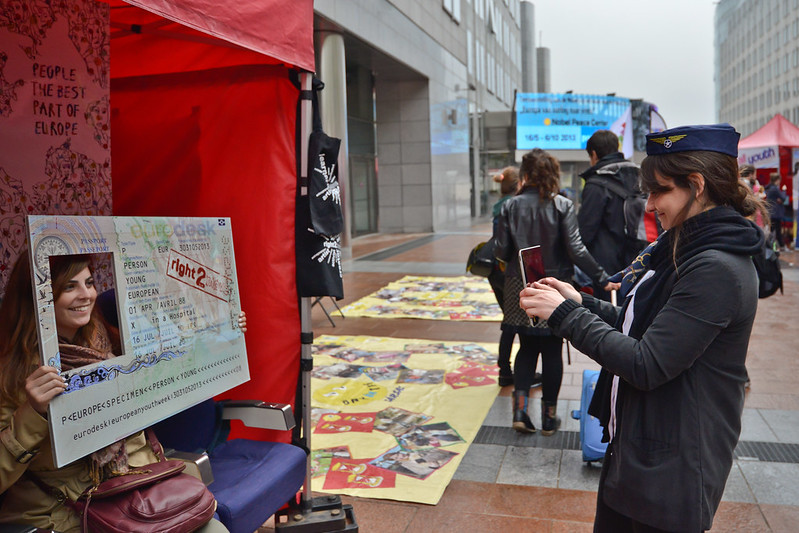Can Europe recover its youth?

None of us has a memory of internal European borders. Instead of collecting national stamps as children, we collected the first euros with different symbols of European capitals. Our generation has been thoroughly shaped by a united Europe.
But many young Europeans today are disappointed and frustrated by the European Union’s failure to fulfill its implied promises. The alarmingly high youth unemployment rates of 25-40% in countries such as Italy, Greece, Spain and even Sweden provide more than sufficient reason for many to question the EU’s worth. Moreover, despite living in an era of peace and relative prosperity, our generation has grown up amid a multitude of crises: financial, migration, climate and now the health and economic crises caused by Covid-19.
While the coronavirus was claiming its first lives in Bergamo, Italy, in late February 2020, people were still singing at après-ski parties in the Austrian resort of Ischgl and celebrating Carnival in Cologne. But as the pandemic spread rapidly across Europe, it soon became clear that individual nation-states couldn’t conquer the virus or achieve economic recovery by themselves.
Overcoming Europe’s serial crises and the growing sense of hopelessness among young people will require leaders to stand together. For starters, they must find the courage to invest and reform. European governments deserve praise for rapidly mobilising huge sums of money to cushion the pandemic’s social and economic impact. And the EU’s planned issuance of common debt to finance its new €750 billion recovery fund represents a huge step forward.
But other reforms must accompany these efforts. If the EU takes on common debt, then it also needs the ability to raise its own revenue in order to repay it, so that today’s investment doesn’t come at the cost of future EU programs. The recently negotiated roadmap for new own resources is a good start and gives hope for real progress. It includes a tax on single-use plastic, an updated EU Emissions Trading System, and a digital tax to generate additional revenue. The European Parliament and the European Commission now need to ensure that member states stick to their commitments.
Just as important, policymakers should link the EU’s recovery fund to the goals of the European Green Deal, and ensure that investment in areas such as basic research isn’t neglected in the understandable haste to emerge from the pandemic-induced downturn. After all, such investments are crucial to securing jobs and prosperity for future generations.
Today, the EU lacks this necessary long-term focus. Consider artificial intelligence. While the United States invested about US$36 billion in developing AI between 2018 and 2019, and China around US$25 billion, total EU private investment amounted to just US$4 billion. If Europe is to prepare itself for the future, it needs bold, targeted investments in green energy, digitalisation and other cutting-edge areas of research.
Europe must demonstrate solidarity on a range of other key issues as well. To be sure, the bitterness and disappointment that many Italians felt towards the EU early in the pandemic have now largely faded, especially since the agreement on the recovery package, with German Chancellor Angela Merkel affirming that, ‘As ever, what’s good for Europe is good for us.’ Austria, too, is no better off when other European economies suffer. On the contrary, its firms and citizens benefit from economic aid throughout Europe.
But European solidarity must extend beyond economic assistance and common debt, and also guide our actions on issues such as migration and climate change. With environmental catastrophes, wars and poverty in the EU’s neighbourhood likely to make the bloc’s asylum and migration challenges more severe in the coming decades, small or short-term steps are unlikely to work. True, the European Commission’s recently proposed new migration and asylum pact includes suggestions for protecting the EU’s external borders. But we need an integrated system that prevents tragic loss of life among migrants desperate to reach Europe’s shores, and establishes a long-term framework with clear competences and responsibilities.
Finally, Europe must develop a clear vision of its place in the world. The former West German chancellor Helmut Schmidt once said that anyone who has visions should consult a doctor. But if Europe has no firm idea of its global role, it will be left in the wake of powers that do.
This is not merely an academic question. Europe currently is in danger of being ground down, both economically and politically, by the superpower rivalry between the US and China. But Europe has an attractive model that is clearly distinguishable from the radically free-market US economy and China’s digital surveillance state, and should promote it to the rest of the world.
The Covid-19 crisis will be at least as important for the future of Europe as the fall of the Berlin Wall was for our parents’ generation. At some point, we will have to answer our own children’s questions about how we dealt with it. If we make the right decisions now, we will be able to say proudly that the pandemic was the moment when Europe rediscovered its boldness and dynamism, and provided its young people with renewed hope for the future.